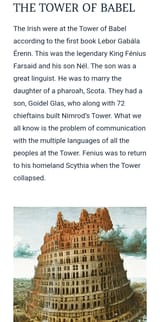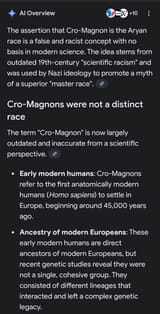Anonymous
(ID: MlOoXfng)
 10/23/2025, 1:38:20 AM
No.519570719
[Report]
>>519570970
>>519571099
>>519571140
>>519571284
>>519572058
>>519572531
>>519572566
>>519572682
>>519572937
>>519572999
>>519573380
>>519573486
>>519574890
>>519577160
>>519578756
>>519582585
>>519582721
>>519583074
>>519583255
>>519583903
>>519584112
>>519584367
>>519585237
>>519585956
>>519587844
>>519588024
>>519588261
10/23/2025, 1:38:20 AM
No.519570719
[Report]
>>519570970
>>519571099
>>519571140
>>519571284
>>519572058
>>519572531
>>519572566
>>519572682
>>519572937
>>519572999
>>519573380
>>519573486
>>519574890
>>519577160
>>519578756
>>519582585
>>519582721
>>519583074
>>519583255
>>519583903
>>519584112
>>519584367
>>519585237
>>519585956
>>519587844
>>519588024
>>519588261
For generations, the Blackfeet Nation told a story: their ancestors had roamed the Montana plains for nearly 18,000 years—long before settlers, maps, or fences existed.
Historians dismissed these accounts as myth or mere storytelling. Oral traditions weren’t seen as reliable history.
Then, in 2022, science finally caught up. DNA analysis revealed the Blackfeet’s lineage diverged from other Indigenous groups about 18,000 years ago, matching their ancient oral history.
This wasn’t just a minor detail—it validated a form of knowledge preserved without written records. The stories passed from elders to children survived millennia, carrying undeniable truth.
For the Blackfeet, storytelling was more than entertainment. It was a vital tool for teaching survival, preserving identity, and maintaining a deep connection to the land.
Every hill, river, and valley held memories tied to specific stories—each one anchored in reality, now confirmed by science.
This discovery challenges us to rethink how we value history and whose voices get heard. It asks: What other truths might be hidden in oral traditions around the world, waiting for us to listen?
The Blackfeet story shows that history isn’t just written in books—it lives in stories, songs, and memories passed down through generations.
Maybe it’s time we all start listening more closely.
Historians dismissed these accounts as myth or mere storytelling. Oral traditions weren’t seen as reliable history.
Then, in 2022, science finally caught up. DNA analysis revealed the Blackfeet’s lineage diverged from other Indigenous groups about 18,000 years ago, matching their ancient oral history.
This wasn’t just a minor detail—it validated a form of knowledge preserved without written records. The stories passed from elders to children survived millennia, carrying undeniable truth.
For the Blackfeet, storytelling was more than entertainment. It was a vital tool for teaching survival, preserving identity, and maintaining a deep connection to the land.
Every hill, river, and valley held memories tied to specific stories—each one anchored in reality, now confirmed by science.
This discovery challenges us to rethink how we value history and whose voices get heard. It asks: What other truths might be hidden in oral traditions around the world, waiting for us to listen?
The Blackfeet story shows that history isn’t just written in books—it lives in stories, songs, and memories passed down through generations.
Maybe it’s time we all start listening more closely.




























